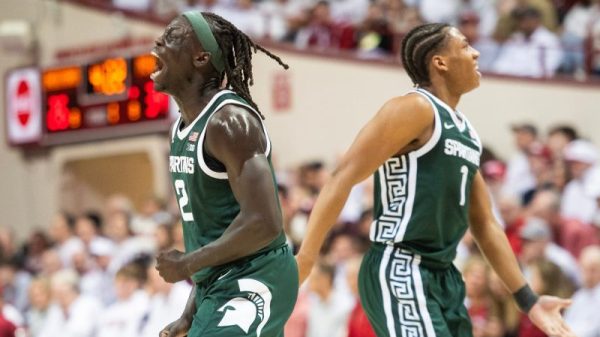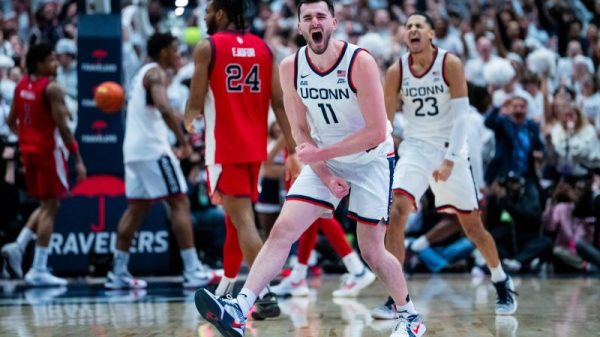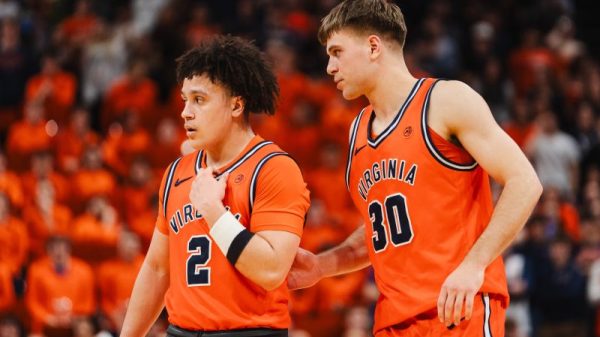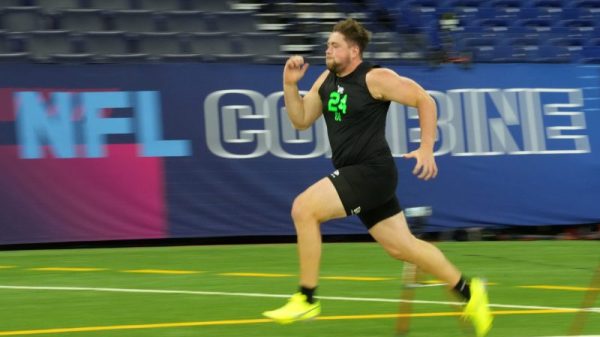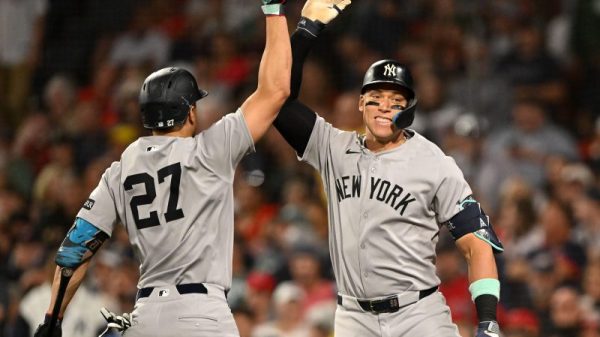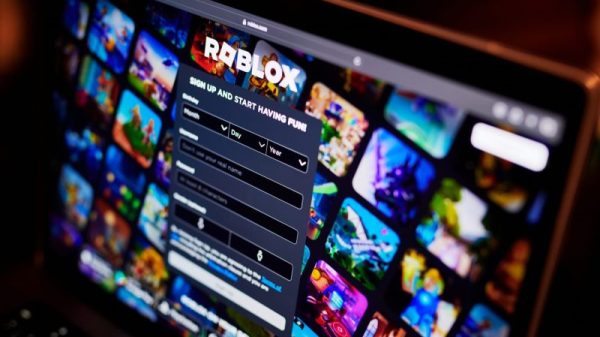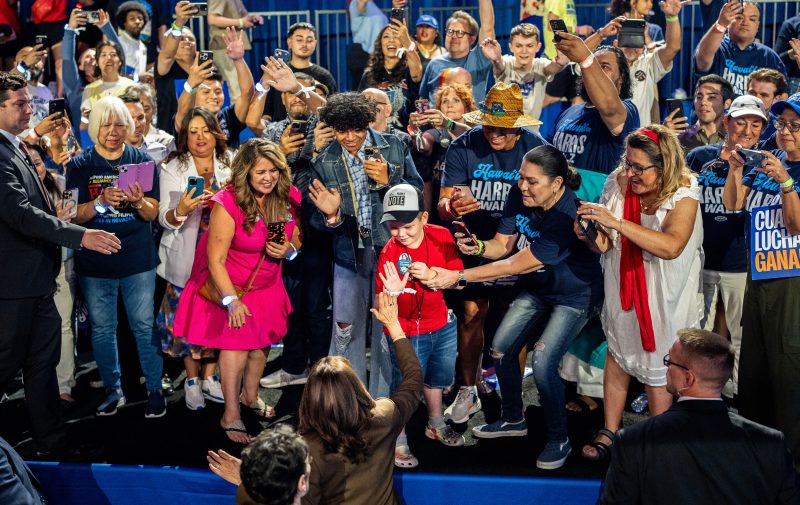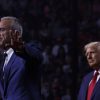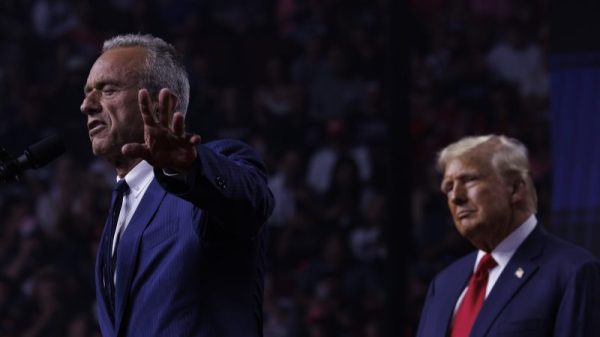With a month to go, Donald Trump and Kamala Harris remain nearly tied in battleground polls.
The similarities end there.
Harris is running a campaign about three times the size of Trump’s operation, according to recent spending reports. She has placed $263 million in ads between the end of the Democratic convention and Oct. 4, nearly 2½ times as much as the $109 million spent by Trump, according to AdImpact.
She boasts more staff, more volunteers, a larger surrogate operation, more digital advertising, a more sophisticated smartphone-based organizing program and extra money for extraneous bells and whistles typically reserved for corporate product launches and professional sports championships. A Harris drone light show recently flew over Philadelphia. Her rally attendees often get light-up pop-concert bracelets. There are even plans in the works for a late October infomercial to air on swing-state broadcast networks.
The scale of her financial advantage is larger than anything Trump faced in his two previous races for the White House. When combining campaign and national party spending, Harris is further ahead of Trump than Hillary Clinton at this point in 2016, Joe Biden at this point in 2020, or Barack Obama was ahead of his Republican opponents in his two races for the White House, according to a Washington Post analysis.
When advertising by outside groups is added to the candidate’s coordinated campaigns, Democrats spent $225 million more on presidential advertising between the end of the Democratic convention and Oct. 4 — or nearly 1.8 times the $294 million spent by Republicans, according to AdImpact.
Democrats spent $97 million on desktop and mobile presidential ads during that period, outspending Republicans by $34 million. This cycle, they’ve spent a combined $278 million on Facebook and Google advertisements about the presidential race, nearly three times Republicans’ total. Although they also outspent Republicans in 2020, their advantage then was smaller.
Eight of the top 10 political advertisers over the past 90 days on Meta, the company that owns Facebook and Instagram, were from pages that carried a disclaimer for Harris or the former Biden campaign. The two Republican advertisers in the top 10, the Trump campaign and Americans for Prosperity, were outspent by a margin of 10-to-1 through Oct. 3 by the other eight — $89 million for Democrats and $8 million for Republicans.
But the spending gap has done little to break open the race in the Democrats’ favor so far. Trump remains far better positioned at this point in the race polling than he was at the same point in 2020. Harris campaign strategists remain convinced that this will be a close election, decided by narrow margins in a handful of states, and that their significant spending advantages will matter.
“We always knew this would be a neck-and-neck race, so we built a campaign that can win a neck-and-neck race,” Harris campaign spokeswoman Lauren Hitt said. “Our strategy seems a lot more likely to be successful than the Trump plan to send a stranger to your door the month before Election Day. Voters can tell the difference between someone trying to earn their vote, and someone who takes them for granted.”
A Post average of public state polling shows Harris leading by two or three points in Wisconsin, Michigan and Pennsylvania, while Trump enjoys a two-point lead in Arizona and Georgia. The spreads in North Carolina and Nevada are less than a single percentage point. Every state is within a normal-sized polling error of 3.5 points and could go either way.
Those numbers have kept confidence high in Trump’s West Palm Beach, Fla., campaign headquarters, even as they find themselves outspent in the daily air and ground battles.
“Kamala Harris is spending hundreds of millions of dollars and she is still polling worse against President Trump than any Democrat ever has against him,” Trump spokeswoman Karoline Leavitt said in a statement. “That’s because President Trump has put together the best campaign team in the business.”
Some Republicans close to Trump worry that if the polling remains tight, the structural gap could sway the outcome in the final weeks, where turnout disparities could prove decisive. These advisers have urged the campaign to spend more on get-out-the-vote efforts. Trump has told his strategists to focus not just on canvassing efforts but on a 175,000-volunteer “election integrity” monitoring program that does not directly drive voters to the polls. He also wants to have money for election challenges and lawsuits, these people said.
Lara Trump, the president’s daughter-in-law and co-chair at the Republican National Committee, has raised concerns that Trump’s campaign needs to be spending more on digital advertisements, according to people who have spoken with her. Trump himself is holding a series of fundraisers in the final month of the race, trying to raise more for his campaign.
Two other operatives involved with the campaign efforts said they were taken aback at how many more commercials they saw for Harris than for Trump in some of the swing states when visiting.
“Across these seven states, the difference will be between 350,000 and 400,000 voters, or so,” said Kevin Madden, a top adviser to Republican Mitt Romney’s 2012 campaign, which found itself outspent by Democrats in the closing months of that race. “I’d rather have more resources than less when I’m battling trench by trench.”
Trump’s campaign leaders maintain they have the resources they need, claiming to have exceeded their own internal fundraising budgets, which always assumed more Democratic resources. They argue that the ability of Trump to get free attention through news coverage and social media makes up for his shortfall in paid advertising and outreach.
“If money was the ultimate determiner of the winner in national elections, Hillary Clinton would be finishing her second term as president,” said James Blair, the Trump campaign’s political director. “Our job is to find a way to win regardless, and I am quite confident that we have the path to do that and the resources that we need to do that.”
Harris — who entered the campaign in late July as a relatively undefined politician — has so far taken a far more cautious approach to the news media, though her team says she will do more interviews in the coming weeks, with a sit-down interview planned on CBS’s “60 Minutes” and other opportunities with local news outlets in key states. The two candidates have been out traveling the country for public events at roughly a similar pace since Harris got in the race, according to a Post analysis.
But her team acknowledges that they are operating in a relatively frozen electorate, with both operations focused on the tiny sliver of voters in key states who have not yet decided whether to vote, whom to vote for or both.
On this score, Harris’s aides believe Trump has a higher hill to climb, as the political realignment of the last decade has allowed Democrats to make inroads among more habitual voters. That is one of the reasons Democrats believe they outperformed expectations in the 2018 and 2022 midterm elections.
“Trump specifically has an electorate that requires a big campaign in some ways. Part of that is because a lot of the people they need to get are sporadic voters,” said a senior Harris strategist, who spoke on the condition of anonymity to discuss internal data. “They are definitionally harder to reach.”
Trump’s aides, for their part, argue that Harris is the one with the turnout problem.
“They better hope they have a ground game, because they’ve got hundreds of thousands of voters in every single swing state who haven’t cast a vote since the 2020 election in any election and they’re not getting a mail ballot this time,” Blair said.
The Harris campaign claimed in late September to have 330 offices and more than 2,400 staff. They completed 25,000 weekend volunteer shifts on the final weekend of last month, contacting over 1 million voters over three days and completed the 100,000th event of the campaign. Blair said the Trump campaign has more than 300 “Trump Force 47” offices for hundreds of paid staffers. The Trump campaign also claims to have 30,000 highly trained volunteer captains, in addition to other volunteers.
Both campaigns also have networks of outside groups that do field work to help their candidates, though that work is harder to track and they operate on different models. One group, America PAC, which has been organized for the benefit of Trump by Tesla CEO Elon Musk, spent about $17 million in September, according to federal spending disclosures.
Cody Hall, a top adviser to Georgia Gov. Brian Kemp (R), said there is a frenzy of activity in the state. “There is Faith and Freedom. Elon’s PAC is knocking doors. We obviously have our thing,” Hall said. “There are a bunch of cooks in the kitchen.”
What he has seen from the campaign, he said, is signing up some volunteers to recruit others. “I still think Trump has a slight edge here, so I don’t know if there’s a great deal of concern, but I think it is really close,” Hall said. He said the resource disparity on spending, and the ground game concerns, still give him some pause about the outcome.
There are also concerns in Michigan, three prominent Republicans said, at a lack of volunteers and organization from the Trump campaign. In Arizona, GOP Chairwoman Gina Swoboda has raised concerns privately, but she said in a statement she is now confident.
“Here in Arizona, I am not only happy with the field program, but confident that our field team is engaging and communicating with the universe of voters we need to return President Donald J. Trump back to the White House,” she said. “We have strategically placed offices where we can positively impact turnout and have the manpower to increase voter registration, increase get out the vote efforts, and deliver the President’s message.”
Trump officials say the advertising discrepancies are not as bad as they were in 2020, when campaign officials found themselves low on cash at the end of the campaign, after heavy spending earlier. They didn’t even have advertisements on TV in Georgia in the final weeks, the official said, and were begging donors for money.
“We were getting trucked at the end,” said one official, who spoke on the condition of anonymity to speak frankly. The person said the spending gap was one reason they believed Trump lost.
Another Trump adviser also said spending was an even bigger problem in 2020. “It’s not new to us,” this person said. This person conceded that the gap hurt in 2020, but said they believed Trump lost due to the handling of the coronavirus pandemic more than the spending gap.
“They’re outspending us, and it’s not moving the polls. It’s really amazing,” the adviser said.
Yvonne Wingett Sanchez in Phoenix contributed to this report.






